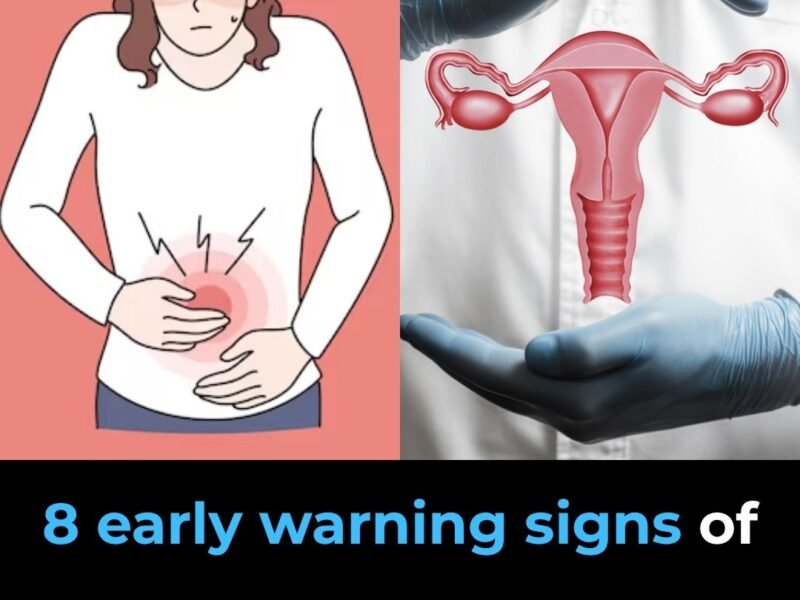Heart disease is a leading cause of death worldwide, and a heart attack can strike suddenly. However, in many cases, the body sends out warning signals weeks or even months before the event occurs. Recognizing these early signs can provide a crucial opportunity to seek medical attention and prevent a life-threatening situation.
In this article, we’ll explore the subtle symptoms your body might show before a heart attack and why you shouldn’t ignore them.
1. Persistent Fatigue
Feeling unusually tired even after getting enough rest can be an early warning sign of heart trouble. If daily activities that once felt easy now leave you feeling drained, it could indicate that your heart is struggling to pump blood efficiently. This symptom is particularly common in women.
What to do: If you experience unexplained fatigue for an extended period, consult your healthcare provider to check your heart health.
2. Chest Discomfort or Pressure
One of the most well-known warning signs is discomfort in the chest. This might not always feel like sharp pain but rather a sense of tightness, pressure, or heaviness that comes and goes. This discomfort can occur during physical activity or even while resting.
What to do: If you experience frequent chest discomfort, do not ignore it. Seek medical attention promptly.
3. Shortness of Breath
If you find yourself struggling to catch your breath while doing routine activities, it could be a sign of an underlying heart issue. The heart and lungs work closely together, and when the heart isn’t functioning properly, it can lead to difficulty breathing.
What to do: Any unexplained shortness of breath should be taken seriously and evaluated by a healthcare professional.
4. Unexplained Sweating
Excessive sweating, especially when you are not exerting yourself, could be a red flag. Cold sweats or sudden night sweats might indicate that your heart is under stress, which could lead to a heart attack.
What to do: If you notice sudden sweating without any clear reason, it’s important to monitor other symptoms and seek medical advice.
5. Irregular Heartbeat
Experiencing an irregular or racing heartbeat, especially when you’re at rest, could be a sign that your heart is not functioning normally. While occasional palpitations can be caused by stress or caffeine, frequent irregular heartbeats could indicate an underlying condition such as atrial fibrillation.
What to do: If your heart frequently feels like it’s skipping beats or racing, get it checked by a doctor.
6. Pain in Other Areas of the Body
Heart-related pain isn’t always limited to the chest. Discomfort can spread to other parts of the body, such as:
- Arms (especially the left arm)
- Shoulders
- Neck and jaw
- Upper back and stomach
These pains occur due to nerve signals being misinterpreted by the brain.
What to do: If you experience unexplained pain in these areas, especially alongside other symptoms, seek immediate medical help.
7. Nausea and Dizziness
Feeling lightheaded, dizzy, or nauseous without an obvious cause can indicate reduced blood flow to the brain and stomach, which may signal heart problems. Women, in particular, are more likely to experience these symptoms before a heart attack.
What to do: Persistent dizziness or nausea should be evaluated by a healthcare professional.
8. Swelling in the Feet, Ankles, or Legs
Swelling in the lower extremities can occur when the heart struggles to pump blood effectively, leading to fluid buildup. This condition, known as edema, can be an early sign of heart failure.
What to do: If you notice persistent swelling in your legs or feet, consult a healthcare provider to assess your heart function.
9. Persistent Cough
A long-lasting cough that produces white or pink mucus may indicate fluid buildup in the lungs, a potential sign of heart failure. If you experience a persistent cough that doesn’t seem related to allergies or infections, it may be worth investigating further.
What to do: Visit your doctor if your cough persists and is accompanied by other heart-related symptoms.
10. Difficulty Sleeping
People who experience frequent sleep disturbances, such as waking up gasping for air or experiencing trouble falling asleep, may have an underlying heart condition. Sleep apnea and poor circulation can contribute to these sleep issues.
What to do: Address sleep problems early and seek medical advice if they continue to interfere with your rest.
How to Lower Your Risk of a Heart Attack
If you experience any of the above warning signs, it’s essential to take proactive steps to reduce your risk. Here are some lifestyle changes that can help:
- Maintain a Heart-Healthy Diet: Eat a balanced diet rich in fruits, vegetables, whole grains, and lean proteins. Reduce your intake of processed foods and unhealthy fats.
- Stay Active: Engage in regular physical activity to keep your heart strong and healthy.
- Manage Stress: Practice stress-relieving activities such as meditation, yoga, or deep breathing exercises.
- Monitor Blood Pressure and Cholesterol: Regular check-ups can help detect any abnormalities early.
- Quit Smoking: Smoking is a major risk factor for heart disease. Quitting can significantly improve heart health.
- Limit Alcohol Consumption: Excessive drinking can raise blood pressure and contribute to heart problem
When to Seek Emergency Help
If you experience the following symptoms suddenly and intensely, call emergency services immediately:
- Severe chest pain or tightness
- Pain spreading to the arm, jaw, or back
- Difficulty breathing
- Sudden dizziness or fainting
- Cold sweats and nausea
Quick action can make a significant difference in surviving a heart attack and reducing potential damage to the heart.
Final Thoughts
Your body often gives early warning signs before a heart attack, and recognizing them could be life-saving. If you or someone you know experiences any of these symptoms, don’t ignore them—seek medical advice promptly. Taking preventative measures now can help ensure a healthier future and reduce the risk of heart disease.


